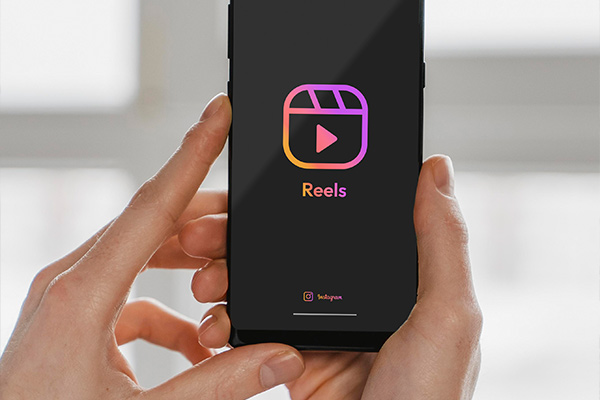Typo Squatting, Cyber Squatting, and other nasty Domain Name dealings

The most important thing to know about the domain name which you own, is that once you renew it and keep it verified, it is yours and no one can take it away from you. This is particularly true of a .ie domains which are exclusive to the Irish market and those who can prove a link to Irish business.
Your domain name is very important to your brand and having a decent, easily searched domain name is a key component in ranking your website and generating traffic. But there is an underworld of threats to your domain name which we are about to tell you all about. If at the end of this piece, you keep your domain name verified and renewed on time, the fear will have been worth it.
Cyber Squatting
Cyber squatting is the nasty practice of registering a domain name which is nothing to do with your own business with the full intention of hijacking it for a ransom from the true brand or for attracting traffic and promoting their own brand. Or to put it officially, the term cybersquatting refers to the unauthorized registration and use of Internet domain names that are identical or similar to trademarks, service marks, company names, or personal names with bad faith intent to profit from the goodwill of a trademark belonging to someone else. Or to put it simply, if you were lucky or dishonest enough to by the domain name tayto.com, you would either resell to the Tayto company for a price of your choice or link your own crisp manufacturer site to the popular brand.
It amounts to internet fraud and does not go unpunished. Provided you can find the fraudsters and take them to task. At one stage the popstar Madonna found that Madonna followed by .com did not bring your to the pop starts site. It did not bring you to a religious site but to a porn site. The World Intellectual Property Foundation found that the owner of the domain had malicious intent and no entitlement to the email adage. You can search it safely now. It is Madonna, the entertainment icon’s rightful property.

It is Identity Theft
Typo squatting is a subdivision of cybersquatting and is that involves hackers registering domains with deliberately misspelled names of well-known websites. Hackers do this to lure unsuspecting users to alternative websites, typically for malicious purposes or simply to collect likes and to push their own brand. The most famous example of typo squatting would be Goggle.com, which is now offline. Typing this address accidentally a few years ago, when wanting to perform a Google search would bring you to a page that instantly downloaded several viruses and other malware and start to spam pop-ups, some of which containing pornographic imagery. It has been rendered harmless since.
Typo squatting can be done by changing the suffix from .com to .net or by adding an ‘s’ to pluralise the name.
Combosquatting is done when the hackers register a domain name similar to the original. So bingobikes.ie could have a combosquat domain name of bingobikesales.ie. This has prompted many large companies to buy up all the variations of their names.
Similarly, Doppelganger domains sneak in or leave out a full stop or period. All of these are identity theft often designed to entice the user to share information on the false site as they phish for personal details that they can use to scam the unsuspecting visitor.
The sharks who fish in the pool of un renewed domains
Very often domain names go unrenewed. Perhaps the invoice and correspondence are being sent to an incorrect or lapsed address or the invoice seems so insignificant, (usually under €20 for the renewal of a .com domain name) that large companies allow the payment date to slide. If you don’t renew your domain name, it goes into NRP or the Non-renewal process. The owner can still pay to renew at this stage, and sometimes with extra fees added by the Registrar. If the domain remains non-renewed, it eventually is released by the Registrar into the public domain.
Released domains are often purchased by companies’ intent on reselling. A good .com is name is worth a lot of money. In 2005, the name insurance.com was sold for a couple of million dollars. If the domain has a high resale value, it will be difficult to get it back. Some of these ‘shark’ companies will simply sell your domain back to you at a high price but others will use your branded name to add an embarrassing website, often with inappropriate content. This forces you to re purchase of your domain name as you try to prevent loyal customers from being redirected to something awful. However, all is not lost if your name has been hijacked.
What you can do to get your name back or to stop hackers’ cybersquatting on your domain
Generally speaking, domains are sold on a first come, first served basis. However, registration rules do mean that cyber squatters can be challenged. If a domain has been used in bad faith, if the opposing party in a dispute has no right or legal tie to the domain name or if it was a similar or identical name purchased to confuse users into thinking it is your domain, you can challenge the name. The .ie disputes can be lodged and dealt with at the IEDR Registrar website. A good place to start with other domains disputes are dealt with by the Irish Government’s The Intellectual Property Office of Ireland where you can seek advice on cybersquatting or ICANN. The Internet Corporation for Assigned Names and Numbers is an US multistakeholder group and non-profit organization. This group are responsible for, among many other internet related things, the management of the domain name system and root servers.
Proving that a domain name was once yours or is being used as internet fraud against you might seem complicated but it is better than having your brand misused by vicious fraudsters. It is important to note that cybersquatting is only illegal if the domain was actually purchased with mis intent. There will be many occasions when companies and individuals will both have a right to similarly named domain names and no harm is intended on either side.

At Dmac Media, we administer multiples of domain names for our many many clients. If it seems that we push for annual verification and prompt payment of annual costs, it is only because we realise the threat that cybersquatting represents. The moral here is to look after your domain identity and keep it updated and renewed. For any other information on domain registration, talk to our sales team today.


 Facebook Reels
Facebook Reels .ie is still the most popular domain registered extension in Ireland
.ie is still the most popular domain registered extension in Ireland Social Media Listening:
Social Media Listening: